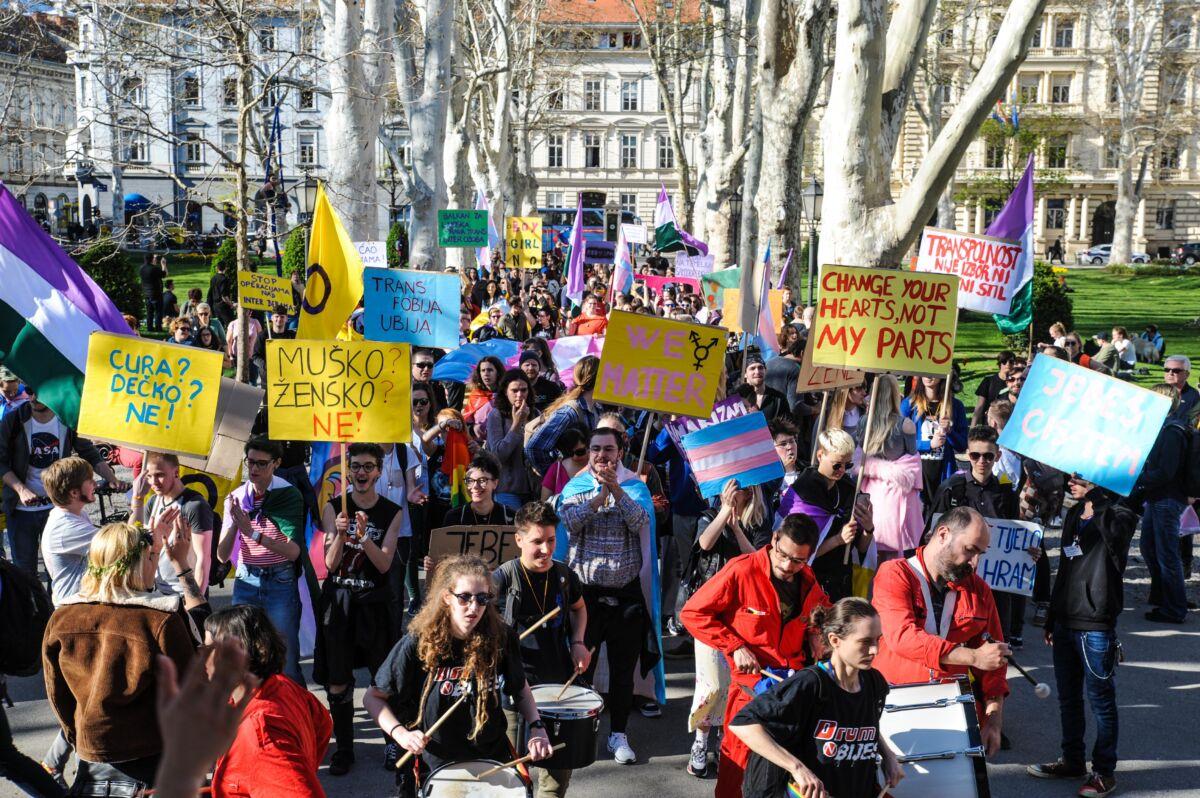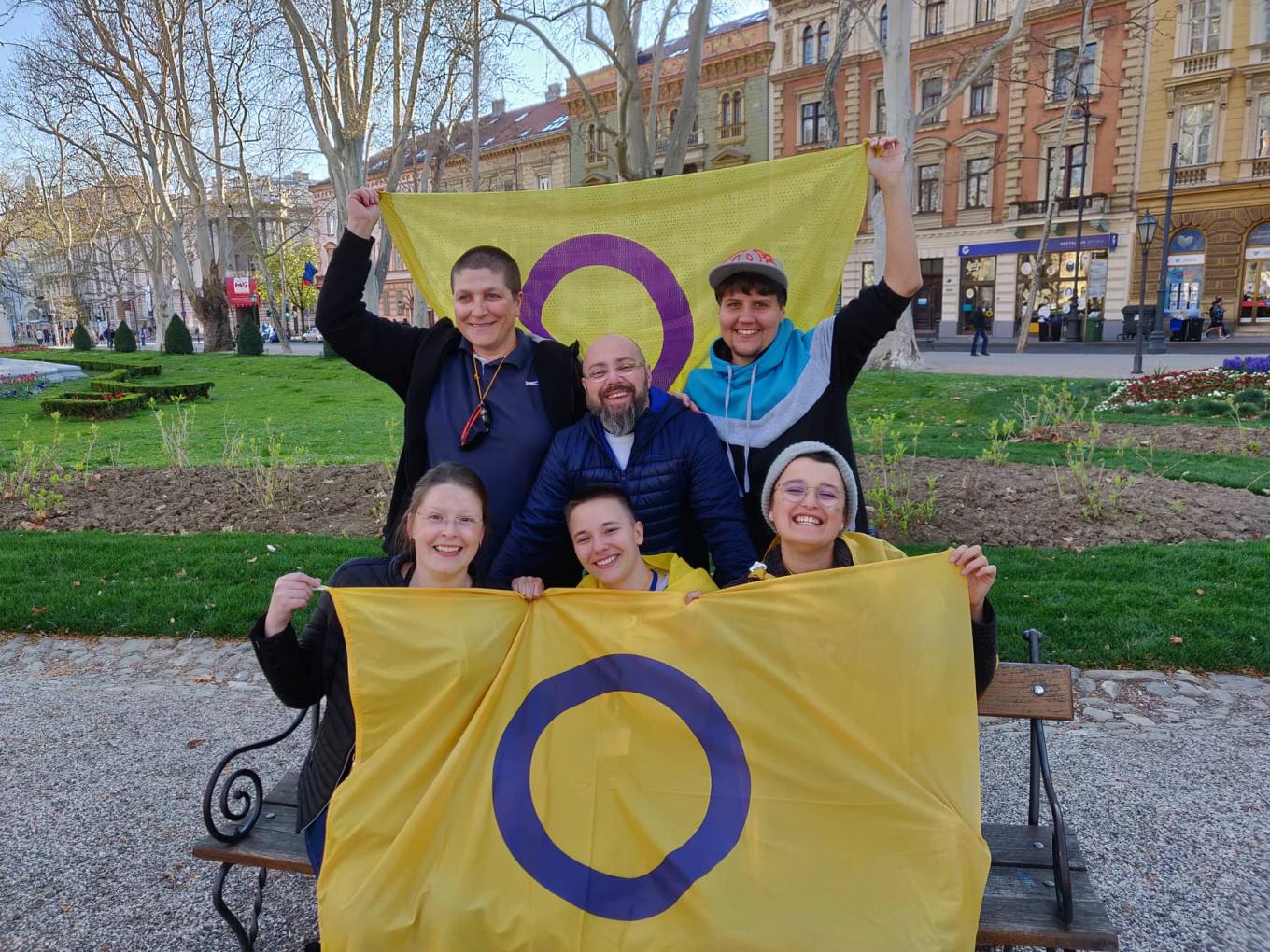
Insights
Intersex issues and activism in Croatia: A regional and European perspective
Region(s)
TOPIC(s)
Type
Commentary
Author(s)
Publish Date
October 30, 2024
Share
In recent years, intersex issues and rights have slowly gained visibility, internationally and across Europe. But intersex people in Croatia and in neighboring countries still face significant social, medical, and legal challenges, reflecting ongoing struggles for bodily autonomy, recognition, and equality. Activism plays a crucial role in this movement, and understanding its dynamics within Croatia, the region, and the broader European context, is key to identifying pathways for change.
Understanding intersex issues in Croatia
In Croatia, intersex people must often confront outdated medical practises, societal stigmas, and a lack of legal protection. The challenges begin at birth, when intersex people are in no position to fight back. In Croatia, binary gender norms strongly shape medical practises, with doctors inflicting unnecessary surgeries on intersex people during infancy or childhood to compel their bodies to confirm to binary notions of male or female. This medicalized model, based on the perception that intersex variations require “fixing,” results in lifelong physical and psychological harm. These interventions are often carried out without the informed consent of not just the individuals themselves, but also their parents, reflecting a practise prevalent across Europe where medical professionals make decisions based on their perception of normative gender roles.
The situation is further compounded by the fact that there is only one publicly intersex person in Croatia, leading most advocacy efforts in the country. This limited visibility underscores the profound stigma surrounding intersex issues and highlights the challenges intersex individuals face when coming out and fighting for their rights.

Intersex activism in Croatia
Intersex activism in Croatia is still in its early stages, largely driven by the efforts of individual advocates. This activism operates in a conservative social environment where traditional gender norms are deeply rooted. Consequently, advocates encounter significant resistance from societal norms and medical practises that enforce a binary view of gender.
The main goals of Croatian intersex activism include raising awareness, stopping nonconsensual medical interventions, and building a supportive community. This movement aligns closely with the broader LGBTIQ+ movement, often finding solidarity with queer- and trans organizations. However, intersex issues are often overshadowed within the realm of LGBTIQ+ advocacy due to a general lack of understanding.
KolekTIRV is the only organization in Croatia specifically working on intersex rights, and it extends its efforts across the region. However, it struggles with a lack of funding, which limits its capacity to fully address intersex issues and provide the necessary support to individuals.
Activism in the region
Other countries in the region, similar to Croatia, face significant challenges regarding intersex rights. In these nations, intersex activism is still in its infancy and confronts rigid medical norms, societal stigma, and the absence of legal recognition.
XY Spectrum, based in Serbia, is the only other organization in the region working specifically toward intersex rights. Intersex activism in Serbia focuses on opposing nonconsensual medical interventions in children. Like kolekTIRV, XY Spectrum extends its advocacy across neighboring countries due to the absence of other intersex activists there. However, XY Spectrum also faces funding challenges that hinder its ability to expand its support and advocacy work.
Both kolekTIRV and XY Spectrum play crucial roles in the region’s intersex activism, but the reliance on these few individuals and organizations underscores the pressing need for more resources and support.

Cross-regional collaboration as a pathway to change
In contrast with the nascent activism in Croatia and the region, some western European countries, including Germany, Greece, Iceland, Malta, and Spain, have seen more developed intersex movements and significant policy advancements.
European organizations such as OII Europe and ILGA-Europe provide support to intersex individuals, call for healthcare reforms, promote bodily autonomy, and advocate for anti-discrimination laws that cover sex characteristics. Their efforts have been supported by the European Parliament and the Council of Europe, which have called for the protection of intersex rights through flexible birth registration laws, bans on nonconsensual medical treatments, and quick legal gender recognition procedures. Still, only a handful of European countries have enacted legal protections for intersex rights.
Intersex activism in Croatia, the broader region, and Europe, shares common goals but varies in its approaches and challenges due to cultural, legal, and socio-economic differences. In Croatia and the surrounding region, there is an urgent need for education and visibility campaigns to confront stigma. With only two publicly known intersex activists in the region, the movement is still in its early awareness-building stage while more developed European countries have progressed to more complex policy advocacy.
Organizations like kolekTIRV and XY Spectrum operate in environments with limited government support and face significant funding constraints. Activism here, is primarily conducted by just a couple of activists with help from endosex allies. We need more support from peers in other European countries and an influx of funding to help address the unique challenges faced in our sub-region.
Intersex activism in Croatia and the region, though in its early stages, is making meaningful strides in raising awareness and advocating for change. The efforts of kolekTIRV in Croatia and XY Spectrum in Serbia underscore the importance of regional collaboration, especially given the lack of other intersex activists in neighboring countries. Connecting with European movements provides opportunities for solidarity and shared learning as Croatian activists strive to drive national change. It also offers the opportunity to advocate for legal and medical reforms on a regional and national level. While the journey is ongoing, the increasing visibility and recognition of intersex issues signal a step toward better lives for intersex individuals. To further this progress, it is crucial for allies, policymakers, and the general public, to support intersex organizations. Spreading awareness, advocating for legal reforms, and donating to these organizations can make a tangible difference in the fight for intersex rights, contributing to a future where intersex people are fully recognized, supported, and free from discrimination.

Take Action
When you support our research, you support a growing global movement and celebrate LGBTIQ lives everywhere.
Donate Now